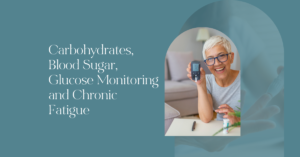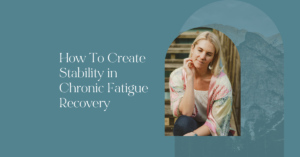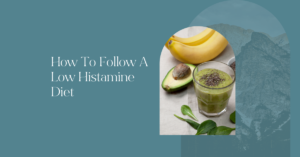Could SIBO be linked to your chronic fatigue? Chronic illness is complex, nuanced and intricate and often imbalances in one system will weave into the next. Among these intersections lies a compelling and challenging relationship— the link between Chronic Fatigue and Small Intestinal Bacterial Overgrowth (SIBO).
When working to solve the puzzle of complex and chronic symptoms, especially fatigue, it is important to consider the connections between all body systems and, due to its relationship with the brain and the immune system, the gut should always be considered worth investigating and rebalancing.
The intention of this blog is to explore the specific imbalance of Small Intestinal Bacterial Overgrowth (SIBO), it’s possible connections to health generally and fatigue specifically, how to test for it and what to do about it.
What is SIBO?
SIBO stands for Small Intestinal Bacterial Overgrowth. It is a condition characterised by an abnormal increase in the number and/or type of bacteria in the small intestine. Normally, the small intestine has relatively low levels of bacteria compared to the colon. However, in individuals with SIBO, bacteria from the colon migrate or grow in excessive amounts in the small intestine, leading to various digestive issues and systemic symptoms.
SIBO can lead to a range of symptoms, including bloating, abdominal pain, diarrhoea, constipation, gas, and malabsorption of nutrients. These symptoms can vary from person to person.
How is SIBO associated with Chronic Fatigue?
The association between Small Intestinal Bacterial Overgrowth (SIBO) and chronic fatigue is an area of ongoing research, and while the connection is not fully understood, there are several proposed mechanisms that may explain the relationship between the two:
Immune System Activation
SIBO can trigger an immune system response as the body reacts to the overgrowth of bacteria in the small intestine. This immune activation may lead to systemic inflammation, which is thought to contribute to fatigue and other symptoms associated with chronic fatigue syndrome (CFS).
Impaired Gut Barrier
SIBO may compromise the integrity of the intestinal barrier, allowing bacteria and their byproducts to enter the bloodstream. This phenomenon is often referred to as “leaky gut.”
Once in the bloodstream, these substances can trigger an immune response and potentially contribute to systemic inflammation, including neuroinflammation, which may contribute to chronic fatigue and associated symptoms such a brain fog.
Neuroinflammation
Activation of the immune system in the gut can send signals to the brain, leading to the activation of microglia, the immune cells in the brain that can contribute to neuroinflammation.
Nutrient Malabsorption
SIBO can interfere with the absorption of nutrients in the small intestine. Malabsorption of essential nutrients like vitamins and minerals may lead to deficiencies, which, in turn, can contribute to fatigue and a range of other symptoms associated with chronic fatigue.
Increased Toxin Production
Bacteria in the small intestine can produce various metabolites and toxins. If SIBO leads to an overproduction of harmful substances, these may be absorbed into the bloodstream and have systemic effects, potentially contributing to the fatigue experienced in chronic fatigue syndrome.
Dysregulation of the Autonomic Nervous System
SIBO may influence the autonomic nervous system, which controls involuntary bodily functions. Dysregulation of this system has been observed in both SIBO and chronic fatigue, suggesting a potential link between the two conditions.
It’s important to note that while these mechanisms are proposed, the relationship between SIBO and chronic fatigue is complex and may vary among individuals. Research in this area is ongoing, and healthcare professionals are continually exploring the connections between gut health and systemic conditions like chronic fatigue syndrome.
What Are The Symptoms of SIBO
Small Intestinal Bacterial Overgrowth (SIBO) can manifest with a variety of symptoms, and these symptoms can vary among individuals. Common symptoms associated with SIBO include:
Gastrointestinal Symptoms
- Bloating:Feeling of fullness and distension in the abdomen, often after meals.
- Abdominal Pain or Discomfort: Cramping or generalised discomfort in the abdominal area.
- Diarrhoea: Unexplained and recurrent bouts of diarrhoea.
- Constipation: Chronic constipation or alternating between diarrhoea and constipation.
Nutritional and Malabsorption Symptoms
- Weight Loss: Unintentional weight loss due to malabsorption of nutrients.
- Nutritional Deficiencies: Deficiencies in vitamins and minerals, leading to symptoms such as anaemia, fatigue, and weakness.
Generalised Symptoms
- Fatigue: Feeling tired or lacking in energy, which may be related to malabsorption or systemic effects of SIBO.
- Joint Pain: In some cases, joint pain may be associated with the inflammatory response triggered by SIBO.
Gastroesophageal Reflux Disease (GERD)
- SIBO may contribute to the development or exacerbation of symptoms related to GERD, including heartburn.
How do you know if SIBO is a problem for you?
SIBO)is typically diagnosed through specialised testing, with the most common method being a breath test. The breath test measures the gases produced by bacteria in the small intestine after the consumption of a liquid carbohydrate solution.
However, testing can produce false positive and false negative results and therefore it is important to take other factors into consideration such as:
- Health history
- Current symptoms
- Response to interventions; diet and supplements
If someone presents with signs of malabsorption (as discussed here), referral for endoscopy may also be advised and there may also be the need to rule out other underlying causes such as celiac disease, intestinal autoimmunity, gut-brain axis problems due to brain injury, hypochlorhydria, parasitic infections and/or gut degeneration.
What To Do If You Suspect You Have SIBO?
Addressing Small Intestinal Bacterial Overgrowth (SIBO) typically involves a comprehensive approach that can include a combination of medical treatment, dietary changes, and managing underlying factors that may contribute to bacterial overgrowth.
Here’s a general guide on how to address SIBO:
Medical Treatment – Antibiotics
Healthcare professionals often prescribe antibiotics to reduce bacterial overgrowth in the small intestine. Commonly used antibiotics for SIBO include rifaximin and neomycin. The choice of antibiotic may depend on the specific type of bacteria identified and the individual’s health status. Research has suggested that in some cases, herbal antimicrobial treatment can be more effective or there is an additive effect of using both. This is something that you should explore with your healthcare provider.
Antimicrobial Herbs
Several antimicrobial herbs are believed to have potential benefits in addressing SIBO by helping to reduce the overgrowth of bacteria in the small intestine. Some that we commonly use in our practise include:
Oregano Oil: Oregano oil contains compounds such as carvacrol and thymol, which are thought to have antimicrobial properties.
Berberine: Found in various plants, berberine has been studied for its potential antimicrobial effects, among other health benefits.
Garlic: Garlic is known for its antimicrobial properties, and allicin is one of its active compounds.
Dietary Changes – Low FODMAP Diet
FODMAP stands for fructose, oligosaccharides, disaccharides, monosaccharides, and polyols. These are types of carbohydrates that are more susceptible to fermentation by bacteria in the small intestine and therefore, consuming foods with large amounts of these carbohydrates may contribute to SIBO symptoms.
Following a low-FODMAP diet, under the guidance of your health care provider, may help to alleviate symptoms.
Monash University has done the most research on the low-FODMAP diet and I recommend their app which gives instructions about which foods have moderate, low and high amounts of FODMAPS according to portion size.
I have previously written about my own experience following a low FODMAP diet here and in 2021 when I was struggling with chronic diarrhoea, I implemented a low Sulphur diet which I also found to be very beneficial at the time.
Probiotics
Probiotics aim to restore a healthy balance to the gut microbiota, which could be beneficial in managing conditions like SIBO. Some studies propose that probiotics may help prevent the recurrence of SIBO after antibiotic treatment.
However, in some cases, there is potential for a worsening of symptoms when taking probiotics in which case, it is an approach to select specific strains of probiotics that may be best tolerated. In practice We like to use soil based probiotic strains and saccharomyces boulardii, which is a beneficial yeast.
Optimised Motility
Stagnation of food in the small intestine can promote bacterial overgrowth and therefore bowel regularity is something that should be addressed. Several factors may need to be considered:
- Low FODMAP Diet
- Adequate fibre to bulk stool without overconsumption to aggravate SIBO
- Proper hydration and fluid intake
- Stress management / vagal tone
- Regular movement to encourage peristalsis
- Medications that may negatively impact gut motility
- Appropriate use of probiotics
- Addressing additional infections e.g. parasite, yeast and mould
- Thyroid disorders, brain injury, neurodegeneration should be ruled out
In addition to all of the above, natural motility agents can be used. These include:
- Ginger
- Peppermint oil
- Ginger tea
- Chamomile
- Fennel seeds
- Lemon balm
- Aloe vera
- Artichoke leaf extract
- Prune juice
- Turmeric
Addressing Underlying Conditions
Identifying and treating any underlying conditions contributing to SIBO, such as structural abnormalities or motility disorders – autoimmune dysmotility, brain injury, neurodegeneration, gastroparesis, post-viral esophageal dysmotility – is essential for long-term management.
Nutritional Support
If nutritional deficiencies are identified, supplementation may be recommended to address deficiencies and support overall health. This may include vitamins, minerals, and other nutrients.
A NutrEval Test may help to establish your specific requirements. In my own journey I had multiple nutrient deficiencies due to malabsorption and chronic diarrhoea from SIBO. I share more about my journey here.
Lifestyle Modifications
Managing stress and adopting a healthy lifestyle can contribute to overall gut health. Stress management techniques, regular exercise, and adequate sleep may play a role in chronic fatigue generally and also gut health specifically in this case. Feel free to review previous resources on these topics or join Nurturing Resilience to support your nervous system better.
Follow Up Testing
Follow Up Testing isn’t always required but some people may opt to do follow up testing to assess the effectiveness of the interventions and determine if bacterial overgrowth has been adequately addressed. The goal ultimately is to become symptoms free, to be able to gradually reintroduce foods that were once eliminated and replete nutrients that were once deficient.
My Personal Journey with Hydrogen Sulfide SIBO
SIBO has probably been something I have experienced on and off my entire life, initially unknowingly and I have become better informed through my training, knowingly. A major contributing factor I believe is undergoing chronic, and probably negligent, antibiotic therapy as a child.
My symptoms have waxed and waned across a lifetime depending on lifestyle factors such as diet, sleep, alcohol consumption, physical activity (and excess thereof) and stress.
In the portion of my life that I consider to be my “Fatigue Recovery Journey” I battled with chronic diarrhoea in the form of “tea” and “pudding” like bowel movements sometimes as much as 15 times per day. It was horrendous to experience and also led to a Malabsorption Syndrome which I discuss in more detail here.
I never did a SIBO breath test but I did do a stool test where I showed high amounts of Desulfovibrio Piger which is a specific bacteria which may increase production of hydrogen sulphide gas which is what some may consider a type of SIBO called hydrogen sulphide SIBO. Diarrhoea may be more common in this type of SIBO. There isn’t a lot of research into this type of SIBO and testing options are limited at this time.
Personally I found a low sulphur diet helpful although I didn’t follow this 100%. I tended to avoid the high sulphur vegetables but continued to eat some of the higher sulphur protein items. The low sulphur diet improved symptoms of bloating and discomfort but it was the combination of the diet alongside brain retraining and personalised supplements, that were most effective when combined together.
That being said, I am still susceptible to relapses from time to time when not staying on top of my lifestyle factors, specifically stress levels.
Concluding Remarks
It’s crucial to note that the approach to addressing SIBO should be personalised, and individuals with SIBO should work closely with their healthcare team. Self-treatment or dietary changes without proper guidance may not be effective and can potentially worsen symptoms.
If you suspect you have SIBO or are experiencing symptoms associated with bacterial overgrowth, consult with a healthcare professional for a thorough evaluation and personalised management plan.










